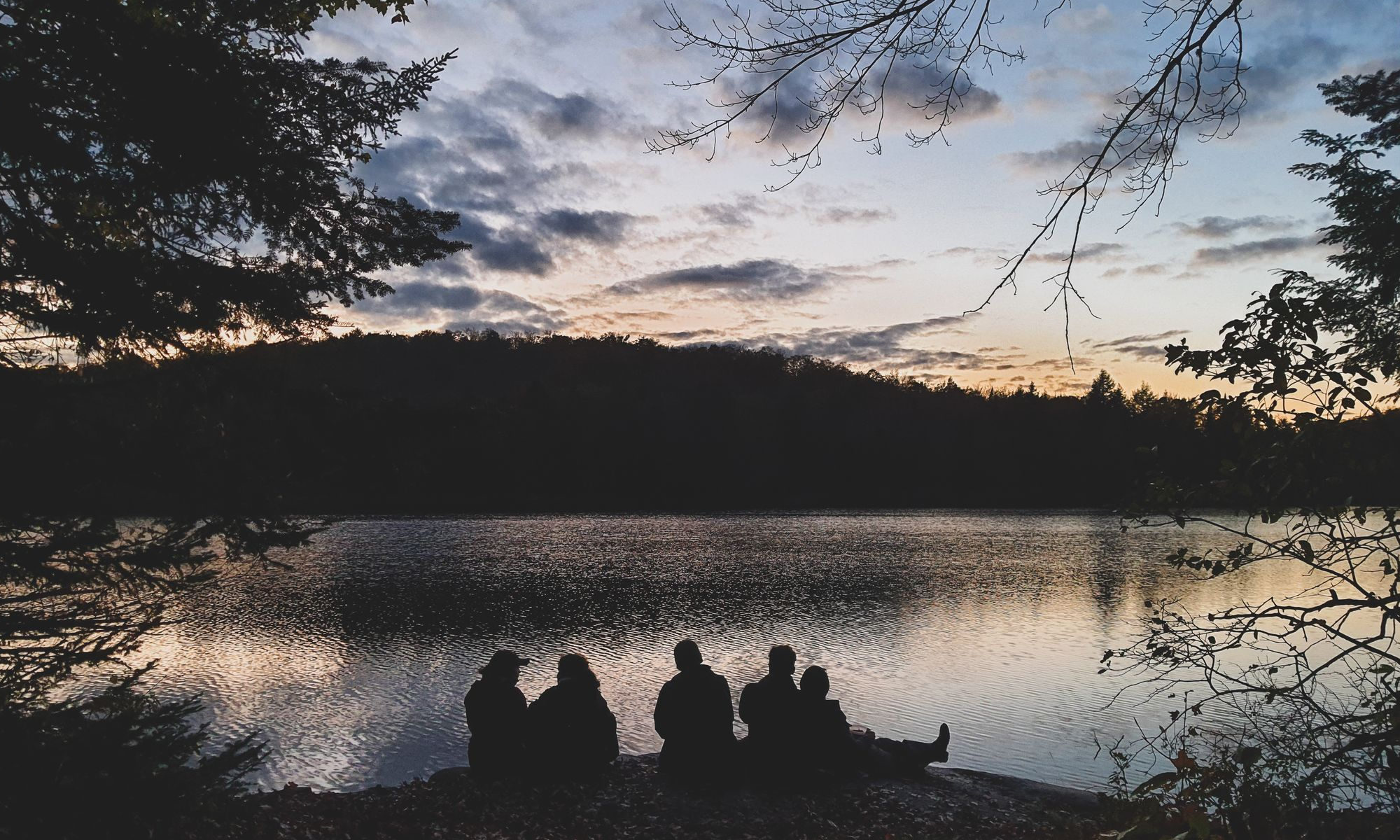“Welcome to the FAQ! Here you’ll find information about our programs. If your question remains unanswered, please contact us at: programmescoyote.office@gmail.com“
1. What if it's rainy?
Being out with the elements in all their moods is one of our core values because we believe it is an opportunity always available to us for building confidence and resiliency! Rain, snow, uncomfortable temperatures, and insects are all valuable teachers as long as we are well-prepared.
For programs at Angrignon park, we will gather under public shelters if the rain is too heavy. For other programs, we will use tarps and what Nature has to offer for shelter.
However, if the weather makes travelling dangerous, or if extreme storms / lightning / winds are expected, we will indeed cancel programs. In the event of a cancellation due to extreme weather, we will be sending an email in the morning of the program. We wait until the day of because it is truly exceptional that we cancel programs due to weather, and so want to be sure in our decision. However, we do not offer refunds for programs cancelled due to weather.
2. What about ticks?
Ticks, just like all the common hazards that we speak about early on in our programs (dangerous plants, falling branches, dehydration etc..) are teachers of awareness. We empower children to look out for these things and get to know them so they don’t live in fear, but nurture an understanding of these things. Ticks are a hazard to approach with a lot of respect because the consequences are significant. The most important thing to do after a day in a wild area that is known to have ticks is to check for ticks at the end of the day and to properly remove them if they are embedded in the skin.
Here are some useful links to know more about ticks and lyme disease:
- https://www.canada.ca/en/public-health/services/diseases/lyme-disease.html
- https://www.inesss.qc.ca/fileadmin/doc/INESSS/Rapports/Biologie_medicale/Lyme_PPE/Lyme_Feuille-de-suivi.pdf (French only)
We send a detailed description of how to check for ticks and other information in our Welcome Document.
3. How can I contact you during programs?
There is always a person in charge that you can contact during programs. Whether it’s the director or the head instructor, you’ll find their phone number in the Welcome Document we send before the first session of the program.
4. What's your cancellation policy?
- For regular programs:
- There is a 50$ non-refundable deposit for your registration to a program.
- For the weekday programs:
- There is a 5% non-refundable deposit of the total price of your registration to a program.
- Should you decide to cancel your registration between 14 and 8 days prior to the starting date of the program, we will keep 50% of the first 25% installment.
- Should you decide to cancel your registration 7 days or less prior to the starting date of the program, we will keep the totality of the first 25% installment.
For youth programs: if your child is unsure whether they would like to participate, please contact us and we would be happy to arrange a trial day before committing to the program.
If a participant must withdraw from an entire program for medical reasons a full refund will be issued, upon receipt of medical evidence (such as a note from a health practitioner).
In the event of low registration, last-minute debilitating illness of instructors, or other circumstances out of our control, programs may be cancelled. Participants will receive a full refund for the day(s) missed, or be offered a make-up program date.
5. I don't have a car, can you help me find a ride?
We include a carpooling link in our Welcome Document for programs you cannot get to with public transportation. Get in touch with us if you cannot find a ride at least 3 days before the program. We cannot guarantee that we will find you a ride but we’ll do what we can to help you out. We will NOT offer refunds if you can’t attend the program because you could not find a ride.
6. How do I know that my young child is ready to attend your programs?
7. Can you file RL-24 slips for your programs?
We can only file RL-24 slips for our summer camps and our programs during the week. These include the Chickadees, the Minks and the Wood Frogs.
It is also possible to claim a refundable tax credit for the physical activities or artistic, cultural or recreational activities of an eligible child.
8. About weekend workshops in Papineauville.
You are asked to bring your own water, food and shelter.
For water, ideally bring your own drinking and cooking water. We will have some extra if you run out. We’ll have hot water to share for warm beverages.
For food we recommend:
– Anything pre-cooked that you want to reheat over the fire.
– Most food will last fine for a weekend as the nights will be cool enough. (Avoid raw meat)
– Some kind of cereal like oatmeal that can be made by just adding hot water
– Sandwiches, wraps, with whatever ingredients you want to put in.
– Lots of little snacks
– A cooler with an ice pack is useful if you want to be very cautious with certain ingredients.
– If you have pots and pans and enjoy cooking over a fire, feel free to explore a wider range of possibilities.
For shelter:
– Bring a tent, mattress and sleeping bag
9. How to dress properly for the rain and the cold?
10. How can we stay warm in the cold (besides our gear)?
11. What are your knife safety rules and where can I get a decent knife for my child?
Consider this knife.
Knife safety rules for youth at our programs:
12. What are some resources you recommend on survival skills and nature mentoring?
- Mathieu Hébert et Geneviève Lavoie: Traces d’animaux du Québec
- Jon Young: Coyote’s Guide to Connecting With Nature, Animal Tracking Basics
- Mors Kowanski: Bushcraft, Boreal Survival
- Tom Brown Jr.: Field Guide to Nature and Survival for Children, The Tracker
- Tamarack Song: Entering the Mind of the Tracker


